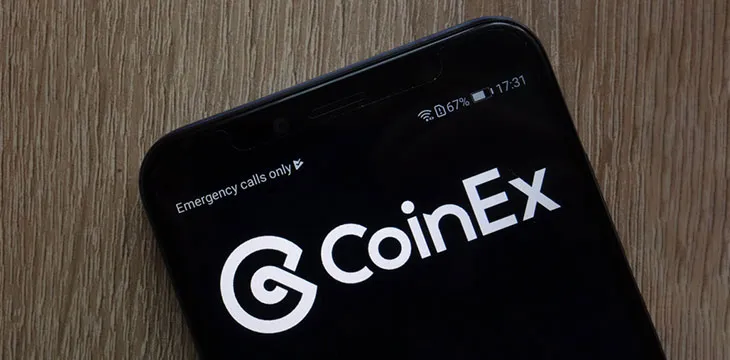|
Getting your Trinity Audio player ready...
|
The New York Attorney General (NYAG)’s office has filed a lawsuit against CoinEx digital assets exchange over its offering of commodities and securities without registration.
Filed at the Supreme Court of New York, the lawsuit alleges that not only did CoinEx fail to register in the state, but it also misrepresented its registration status to its users.
I'm suing cryptocurrency platform @coinexcom for illegally operating in New York without registering with the state.
⏰Wake-up call: crypto platforms must play by the same set of rules as everyone else.
— NY AG James (@NewYorkStateAG) February 22, 2023
“CoinEx is an unregistered cryptocurrency trading platform that sold, offered to sell, purchased, and offered to purchase securities to and from the public and engaged in the business of selling or offering to sell commodities through commodity contracts to the public in the State of New York,” the lawsuit, filed by NYAG Letitia James alleges.
James goes on to allege that CoinEx offered securities without registering with the Securities and Exchange Commission (SEC) and commodities without registering with the Commodities and Futures Trading Commission (CFTC). It also failed to register with regulators in New York despite serving users in the state.
“CoinEx engaged in repeated and persistent fraudulent practices in violation of the New York Executive Law and the New York GBL,” James said.
In particular, the NYAG’s suit cited four tokens that CoinEx offered, which it deems to be securities. They include AMP, the native token for the Flexa ecosystem, which the SEC deemed to be a security in its insider trading lawsuit against a former Coinbase official.
It also cited LBC, the token at the heart of a recent legal battle between the SEC and LBRY, a decentralized publishing network. LBRY settled with the SEC, agreeing to shut down, although the LBC token remains in circulation.
The other two tokens were LUNA, the collapsed token of the defunct (and reincarnated) Terra ecosystem, and RLY, the token native to the Rally network.
In response, CoinEx pledged to cooperate with the NYAG and prosecutors in the case. This is despite reportedly refusing to comply with a subpoena issued in January.
“Since CoinEx is keenly aware of how essential a clear regulatory framework is to the long-term development of the industry, we have always attached great importance to regulatory compliance and aim to become a safe and reliable crypto exchange where all users can trade at ease,” the exchange claimed.
📢 Announcement
Given the recent lawsuit against CoinEx for allegedly operating an unregistered cryptocurrency exchange, we are paying high attention to the allegations and taking active steps to address New York Attorney's concerns promptly.
See poster for details ⤵️#CoinEx pic.twitter.com/PJe4zo0K0N
— CoinEx Global (@coinexcom) February 23, 2023
James is pushing for a permanent injunction, injunctive relief, restitution, and disgorgement. She also wants the exchange to provide an accounting of all fees received from New York clients and award the NYAG’s office “a sum not exceeding two thousand dollars against each defendant.”
The AG also called for CoinEx to geo-block New Yorkers based on their IP addresses and GPS locations.
“Our laws are designed to protect New Yorkers, and when companies ignore them, they put residents, investors, and businesses at risk. The days of crypto companies like CoinEx acting like the rules do not apply to them are over. My office will continue to protect New York investors and ensure our state’s laws are followed,” James commented.
This is the latest action by James against digital asset companies. Just weeks ago, she was part of a multistate action against Nexo which recovered $22.5 million from the digital lender. Nexo announced that it would cease offering its interest-bearing accounts in the U.S. following the legal action.
James has also gone after BlockFi, Celsius Network founder Alex Mashinsky, and others for violating New York laws.
Watch: U.S. Congressman Patrick McHenry on Blockchain Policy Matters

 07-05-2025
07-05-2025 





